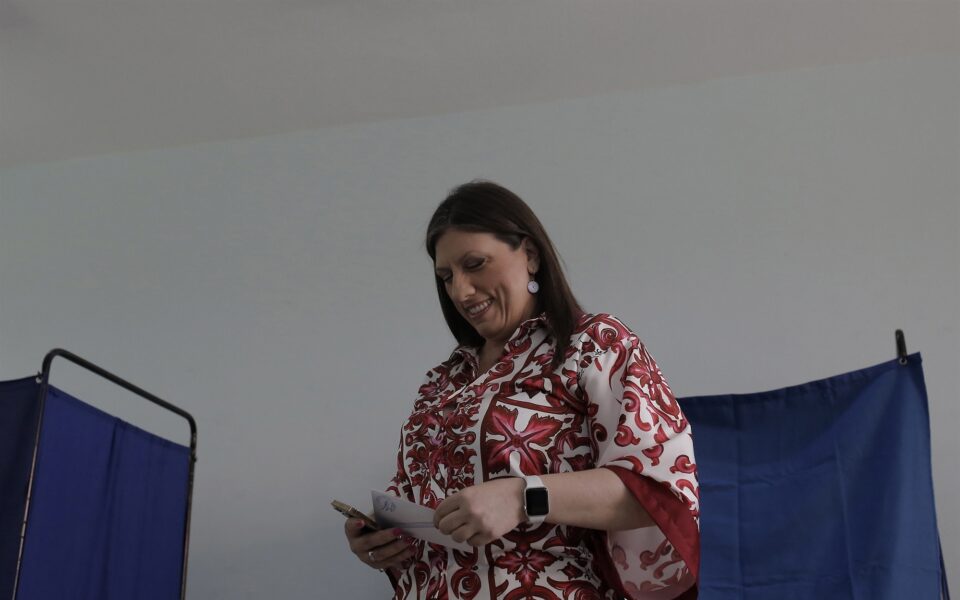The paradoxes of the ballot box

The first question after this year’s elections is where did Zoe Konstantopoulou, leader of Plefsi Eleftherias, or Course of Freedom, find the extra 90,000 votes in the May general elections? In the previous elections in 2019, 82,786 voters (1.47%) chose Course of Freedom; in May this year it jumped to 170,424 votes (2.89%); and in June it got 165,210 (3.17%). Neither she nor her party has done anything of note to warrant a more than doubling of her supporters, unless the country suddenly has many feminists who appreciated her attempt to be included in the televised debate of political leaders “as the only woman leading a party,” as she noted at the time. Fortunately, the bipartisan committee discussing the rules of the debate didn’t budge and there was no whining by shallow rights defenders about the all-male panel.
Yet the question remains, what happened between 2019 and 2023, when voters (with the help of abstentions in June) brought back one of Parliament’s most toxic people? Did her father and former leader of left-wing Synaspismos, Nikos Konstantopoulos, help (even though, as party leader, he did not manage to break through the 3% threshold to enter Parliament)? Did the hearts she formed with her hands and other cute gestures convince the public that the insults she hurled at men and women and against democracy were a thing of the past? If this is the case, then we’re talking about a marketing triumph in product repositioning.
The question remains, what happened between 2019 and 2023, when voters (with the help of abstentions in June) brought back one of Parliament’s most toxic people?
We are hoping for two things: 1) that Konstantopoulou has matured in her eight years away from Parliament and will not show her bad side, as she did when she held the third highest office in the country, that of parliament speaker; 2) that the mandate of her voters is not the same as that of neo-Nazi Golden Dawn in 2012, when its members wanted “someone to enter the Parliament and wreak havoc.” But even if it is, we hope that the Course of Freedom leader has achieved enough maturity (it is, after all, eight years) to ignore it.
The second great mystery is the sudden success of the ultra-religious, nationalist Niki (Greek for Victory) and the far-right Spartans (Spartiates). Yes, we all know the facts about who are behind those parties, but the paradox here has to do with their voters. We have 435,000 people who do not trust anyone: not politicians, not the media, not international organizations, not even respected scientists and doctors who were asking them to get vaccinated against Covid-19. Nevertheless, they are quick to trust political formations that come out of nowhere.
How do they know, for example, that these parties are not instruments of the “New World Order,” trying to fool them? How do people who don’t trust their own shadow vote for people they don’t know? The Greek proverb about those who are too smart for their own good ending up having their plans unexpectedly foiled is probably true.





